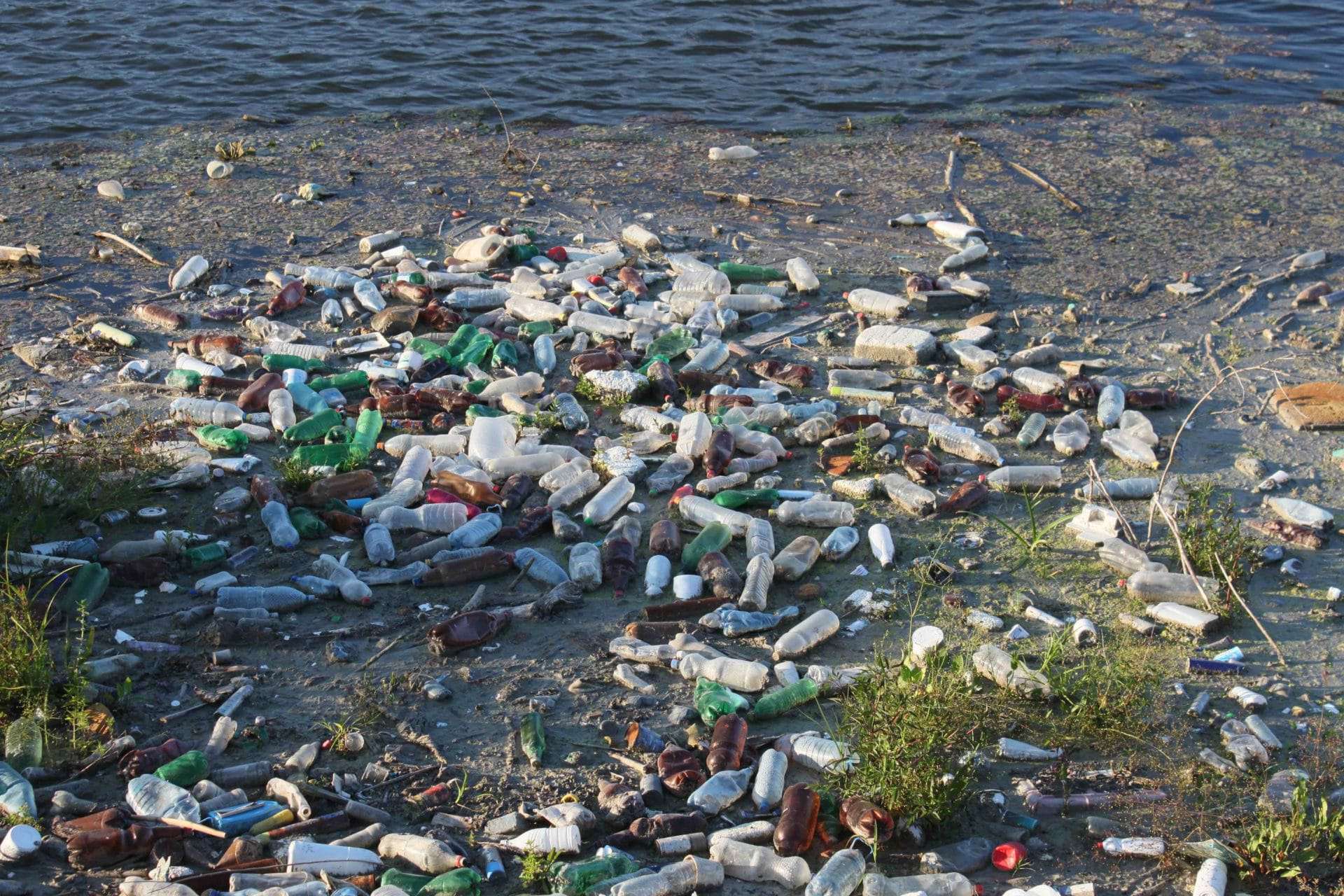Consumerism and the Environment
by CAPP-USA
For decades, the Church has pointed out the link between consumerism and harm to the environment. What is the environmental impact of consumerism?

Consumerism and the environment are linked because excessive consumption exploits nature and ruins humanity
Does consumerism really affect the environment?
Yes! The negative effects of consumerism are rampant and lead to “soul stifling materialism” (Pope St. Paul VI, 19) which, in turn, has produced an ecological crisis. (Pope St. John Paul II, 15)
What is Consumerism?
Many of us might think consumerism is simply an impulsive shopping spree or an occasional splurge. How does that harm the environment?
We need to be clear: Consumerism in a sentence is “a style of life directed at ‘having’ rather than ‘being‘”… A person who is concerned solely or primarily with possessing and enjoying – who can no longer subordinate his instincts – cannot be free.” (Pope St. John Paul II, 36)
Those splurges add up!
Mass Consumerism
Consumerism examples in the U.S. are not difficult to find. It’s rampant. Caused by an endless supply of consumer goods; the constant, algorithmically targeted barrage to buy, and the expediency of on-line purchasing with its instant delivery.
The physical ecological impact is obvious: raw materials, production costs, energy, packaging, transportation (air and vehicular), etc.
The human ecological impact is less obvious. What begins as one impulse buy easily multiplies and becomes “a style of life…which wants to have more, not in order to be more but in order to spend life in enjoyment as an end in itself.” (Pope St. John Paul II, 36)
All this contributes to an ever-increasing consumerism.
Effects of Consumerism
The effects of Consumerism are both personal and societal.
Becoming focused more on “having”, rather than “being” it leads to the “excessive promotion of purely utilitarian values”. (Pope St. John Paul II, 29)
Such excessive mass consumption “weakens the development and stability of personal relationships”. (Pope Francis, 67) It “prevents us from cherishing each thing and each moment.” (Pope Francis, 222)
Ultimately, Consumerism leads us to see our “lives as a series of sensations to be experienced rather than as a work to be accomplished.” (Pope St. John Paul II, 39)
Indeed, “A constant flood of new consumer goods can baffle the heart”. (Pope Francis, 222) It leads to a situation where “Human beings are themselves considered consumer goods to be used and then discarded.” (Pope Francis, 53)
Indeed, “freedom is under threat. How?…by a consumerism that anesthetizes… when the only thing that counts is thinking about oneself and doing what one likes, the roots suffocate.” (Pope Francis)
And, all of this “jeopardizes” our “collective fulfillment”. (Pope St. Paul VI, 18)
Consumerism and the Environment
“It is possible that we do not grasp the gravity of the challenges now before us.” (Pope Francis, 105)
While Pope Francis identifies consumerism’s “dynamic of dominion” (Laudato Si, 222) as a key cause of the degradation of our environment, already in 1971 Pope St. Paul VI pointed out that man is “becoming aware that by an ill-considered exploitation of nature he risks destroying it and becoming in his turn the victim of this degradation.” (Octogesima Adveniens, 21)
Have Faith! Ending Consumerism will Help the Environment
Faith can and does play a key role in solving any ecological crisis.
“In all this, [consumerism and ecological degradation] one notes first the poverty or narrowness of man’s outlook, motivated as he is by a desire to possess things rather than to relate them to the truth”. (Pope St. John Paul II, 37)
“We require a new and universal solidarity” (Pope Francis, 14) “born of wonder in the presence of being and of the beauty which enables one to see in visible things the message of the invisible God who created them.” (Pope St. John Paul II, 37)
Consumerism in America may seem unstoppable – but it isn’t!
“Once Jesus dwells in our heart, the center of life is no longer my ravenous and selfish ego, but the One who is born and lives for love.” (Pope Francis)
In fact, “Such sobriety, when lived freely and consciously, is liberating.” (Pope Francis, 223)
How Can I Stop Consumerism?
First, we need to be clear, “It is not wrong to want to live better“. (Pope St. John Paul II, 36) But, “Happiness means knowing how to limit some needs which only diminish us”.
When we become obsessed with possessing and enjoying – we cannot be free.
The ecological crisis “calls for a lifestyle marked by sobriety and solidarity”. (Pope Benedict XVI, 5) “Too many of us act like tyrants with regard to creation. Let us make an effort to change and to adopt more simple and respectful lifestyles!” (Pope Francis)
We must ask, “Can I manage [to] live a life of greater simplicity?” (Pope Francis)
Bottom line: man must “subordinate[s] his material and instinctive dimensions to his interior and spiritual ones.” (Pope St. John Paul II, 36)
How Can We Stop Consumerism?
Society is called to “a serious review of its lifestyle, which in many parts of the world is prone to hedonism and consumerism, regardless of their harmful consequences”. (Pope Benedict XVI, 51)
The earth “cries out to us because of the harm we have inflicted on her by our irresponsible use and abuse of the goods with which God has endowed her”. (Laudato Si, 2)
The Church calls us to nothing less than “a bold cultural revolution“. (Pope Francis, 114)





